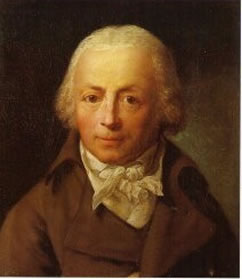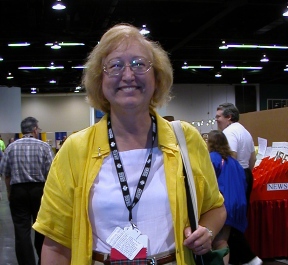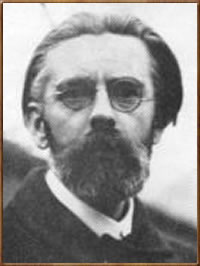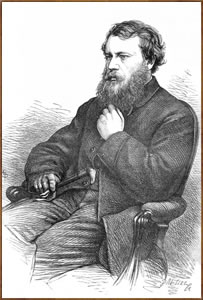De Amerikaanse schrijver Nicholas Sparks werd geboren in Omaha, Nebraska op 31 december 1965. Zie ook alle tags voor Nicolas Sparks op dit blog.
Uit: Every Breath
“There are stories that rise from mysterious, unknown places, and others that are discovered, a gift from someone else. This story is one of the latter. On a cool and blustery day in the late spring of 2016, I drove to Sunset Beach, North Carolina, one of many small islands between Wilmington and the South Carolina border. I parked my truck near the pier and hiked down the beach, heading for Bird Island, an uninhabited coastal preserve. Locals had told me there was something I should see; perhaps, they’d even suggested, the site would end up in one of my novels. They told me to keep my eye out for an American flag; when I spotted it in the distance, I’d know I was getting close.
Not long after the flag came into view, I kept my eyes peeled. I was to look for a mailbox called Kindred Spirit near the dunes. The mailbox—planted on a pole of aging driftwood near a saw grass–speckled dune—has been around since 1983 and belongs to no one and everyone. Anyone can leave a letter or postcard; any passerby can read whatever has been placed inside the mailbox. Thousands of people do so every year. Over time, Kindred Spirit has been a repository of hopes and dreams in written form . . . and always, there are love stories to be found. The beach was deserted. As I approached the isolated mailbox on its lonely stretch of shoreline, I could just make out a wooden bench beside it. It was the perfect resting place, an outpost of reflection.
Reaching inside the mailbox, I found two postcards, several previously opened letters, a recipe for Brunswick stew, a journal that appeared to have been written in German, and a thick manila envelope. There were pens, a pad of unused paper, and envelopes—presumably for anyone who was inspired to add their own story to the contents. Taking a seat on the bench, I perused the postcards and the recipe before turning to the letters. Almost immediately, I noticed that no one used last names. Some of the letters had first names, others had only initials, and still others were completely anonymous, which only added to the sense of mystery.
But anonymity seemed to allow for candid reflection. I read about a woman who, in the aftermath of a struggle with cancer, had met the man of her dreams at a Christian bookstore, but worried that she wasn’t good enough for him. I read about a child who hoped to one day become an astronaut. There was a letter from a young man who planned to propose to his sweetheart, and still another from a man who was afraid to ask his neighbor on a date for fear of rejection.”

Nicholas Sparks (Omaha, 31 december 1965)
De Duitse schrijfster Irina Korschunow werd geboren op 31 december 1925 in Stendal in Sachsen-Anhalt. Zie ook alle tags voor Irina Korschunow op dit blog.
Uit: Langsamer Abschied
„Einer unserer Freunde beispielsweise hatte das ProgrammdereigenenTrauerfeierrechtzeitigfestgelegt, worauf zwei Celli ungehindert sämtliche Strophen von MackieMessersHaifisch-SonganseinemSargdarboten, feierlich wie ein Largo, man wusste nicht, ob man weinen oder lachen sollte, aber der Wille des Toten wurde erfüllt. Pierre indessen, weil unser alttestamentarischer Pastor Kröger Sakrilege solcher Art nicht zuließ, durfte nur mit einem Bach’schen Geigensolo sowie dem langsamen Satz aus Beethovens zweitem Streichquartett verabschiedet werden. Kein einziger Takt Yesterday, meine Schuld, ich hätte darum kämpfen müssen. Doch jetzt war wohl auch dies nicht mehr von Belang. »Pierre«, hatte er mir damals beim Tanzen mitgeteilt, »ich bin Pierre. Und du?« »Nora«, sagte ich. »Nora«, er zog das O breit auseinander. »Etwa nach der aufmüpfigen Dame von Ibsen?« »Mag sein«, sagte ich, »da müsste man mit meiner Mutter reden.« Er lachte: »Wohl eine frühe Emanze?«, was der Sache ziemlich nahe kam, und um der Antwort auszuweichen, fragte ich, ob denn hinter jedem Namen das passende Programm stecken müsse und wie es bei ihm damit stehe. Pierre, da könne man ja sicher etwas Französisches vermuten.
Er runzelte kurz die Stirn, »mag ebenfalls sein, aber das verrate ich erst, wenn wir uns besser kennen. Gibt es eine Chance?« »Ich bin doch keine Kassandra«, sagte ich, alles nur so hingeworfen, nicht mehr als Geplänkel. Im Übrigen gefielermirmitseinerlässigenArtundderIronieinder Stimme, und dann die Augen, die dunkel waren, neugierig und beredt, französische Augen. Wir tanzten den ganzen Abend zusammen, und gegen Mitternacht, auf dem Waldweg, der vom Rohns in die Stadt hinunterführte, küsste er mich, er mich und ich ihn, nein, keine Rede von Einseitigkeit. Doch auf die damals bereits übliche Frage, ob wir zu mir gehen wollten oder zu ihm in sein Zimmer am Goldgraben, bekam er ein entschiedenes »Weder-noch« hingeworfen, zu meiner eigenen Verwunderung. Ich war, was die sogenannten Beziehungen betraf,bishernichtbesondersheikelgewesen,vielleicht aus Angst vor irgendetwas Ernsthaftem, das mich von meinem Studium hätte entfernen können, und wohl auch,weileskeinemderwechselndenFreundegelungen war, die Erde erbeben zu lassen, wie ich es einst, gerade vierzehn geworden, in Hemingways »Wem die Stunde schlägt« gelesen hatte. Maria und Roberto unter dem spanischen Sternenhimmel, und die Erde zittert, unvergesslich, dieses Bild, tiefverwurzelt in der Phantasie. Möglich,dassnun,achtJahrespäter,PierremiralsBote ausBezirken,woesWundersolcherArtzugebenschien, vorgekommen war, ein Wissender, nicht geschaffen für die üblichen Banalitäten, und mein »Weder-noch« die einzig richtige Reaktion.“

Irina Korschunow (31 december 1925 – 31 december 2013)
De Duitse dichter en schrijver Gottfried August Bürger werd geboren op 31`december 1747 in Molmerswende. Zie ook alle tags voor Gottfried August Bürger op dit blog.
Sanct Stephan (Fragment)
“Nennt mir Propheten, die sie nicht
Verfolgt und hingerichtet,
Wenn sie aus göttlichem Gesicht
Des Heilands Kunft berichtet,
Des Heilands, welchen eu’r Verrath
Zu Tode jetzt gekreuzigt hat.
Ihr wißt zwar Gottes Willen,
Doch wollt ihn nie erfüllen.”
Und horch! ein dumpfer Lärm erscholl.
Es knirschte das Getümmel.
Er aber ward des Geistes voll
Und blickt’ empor gen Himmel
Und sah eröffnet weit und breit
Des ganzen Himmels Herrlichkeit
Und Jesum in den Höhen
Zur Rechten Gottes stehen.
Nun rief er hoch im Jubelton:
“Ich seh’ im offnen Himmel,
Zu Gottes Rechten, Gottes Sohn!”
Da stürmte das Getümmel
Und brauste wie ein wildes Meer
Und übertäubte das Gehör,
Und wie von Sturm und Wogen
Ward er hinweggezogen.
Hinaus zum nächsten Thore brach
Der Strom der tollen Menge
Und schleifte den Mann Gottes nach,
Zerstoßen im Gedränge;
Und tausend Mörderstimmen schrien,
Und Steine hagelten auf ihn
Aus tausend Mörderhänden,
Die Rache zu vollenden.
Als er den letzten Odem zog,
Zerschellt von ihrem Grimme,
Da faltet’ er die Hände hoch
Und bat mit lauter Stimme:
“Behalt’, o Herr, für dein Gericht
Dem Volke diese Sünde nicht! –
Nimm meinen Geist von hinnen!”
Hier schwanden ihm die Sinnen.

Gottfried August Bürger (31 december 1747 – 8 juni 1794)
Molmerswende
De Schotse dichter Alexander Smith werd geboren op 31 december 1830 in Kilmarnock. Zie ook alle tags voor Alexander Smith op dit blog.
Barbara
On the Sabbath-day,
Through the churchyard old and gray,
Over the crisp and yellow leaves I held my rustling way;
And amid the words of mercy, falling on my soul like balms,
‘Mid the gorgeous storms of music–in the mellow organ-calms,
‘Mid the upward-streaming prayers, and the rich and solemn psalms,
I stood careless, Barbara.
My heart was otherwhere,
While the organ shook the air,
And the priest, with outspread hands, bless’d the people with a
prayer;
But when rising to go homeward, with a mild and saintlike shine
Gleam’d a face of airy beauty with its heavenly eyes on mine–
Gleam’d and vanish’d in a moment–O that face was surely thine
Out of heaven, Barbara!
O pallid, pallid face!
O earnest eyes of grace!
When last I saw thee, dearest, it was in another place.
You came running forth to meet me with my love-gift on your wrist:
The flutter of a long white dress, then all was lost in mist–
A purple stain of agony was on the mouth I kiss’d,
That wild morning, Barbara.
I search’d, in my despair,
Sunny noon and midnight air;
I could not drive away the thought that you were lingering there.
O many and many a winter night I sat when you were gone,
My worn face buried in my hands, beside the fire alone–
Within the dripping churchyard, the rain plashing on your stone,
You were sleeping, Barbara.

Alexander Smith (31 december 1830 – 5 januari 1867)
De Uruguayaanse schrijver Horacio Quiroga werd geboren op 31 december 1878 in Salto. Zie ook alle tags voor Horacio Quiroga op dit blog.
Uit: For a Night of Insomnia (Vertaald door Stephen Mc.)
“In that moment the deceased escaped from between our knees and fell to the floor of the carriage in complete nightfall, in the darkness, we grabbed each other’s hands, shaking from top to bottom, without daring to look at one another.
All of those old ideas from when you are a kid, absurd beliefs, took shape within us. We lifted out feet up to the seats, unconsciously, out of horror, while on the floor of the carriage, the deceased jolted from one side to the other.
After a while, our feet began to grow cold. It was an icy cold that came from the bottom and made its way through the whole body, as if death was contagiously clinging to us. We did not dare move. From time to time we would lean toward the floor, and would stay staring into the darkness, with our eyes aghast, believing to see the deceased sit up with his delirious look, laughing, looking at us, putting death into each one of us, laughing, putting his face close to ours, in the darkness we could see his eyes shine, and he laughed, we were frozen, dead, dead, in that carriage that led us through damp streets…
We found ourselves again in the parlor, all of us together, seated in rows. The coffin had been placed in the middle of the parlor and the deceased’s clothes had not been changed given that his limps were too stiff. His head was gently elevated with his nose and mouth stuffed with cotton.
Seeing him again, a tremble filled our bodies and we looked at each other shamefully. The parlor was filled with people walking about constantly, and this distracted us a bit. From time to time, one by one, we observed the deceased, bloated and green stretched out in the coffin.
After half an hour, I felt someone touch me and I turned around. My friends were numb. From where we were, the deceased was staring at us.”

Horacio Quiroga (31 december 1878 – 19 februari 1939)
Cover
De Duitse schrijver en musicus Stephan Krawczyk werd geboren op 31 december 1955 in Weida in Thüringen. Zie ook alle tags voor Stephan Krawczyk op dit blog.
Uit: Steine hüten
„Es ist dumm oder gut gelaufen – wie er plötzlich am Kaffeetisch saß, saß ich plötzlich im Westen. Reichlich zwei Jahre später erfuhr ich aus der Ferne von Schnurs innerem Reichtum – alles besaß er doppelt – vielleicht blieb sein Mund beim Gähnen geschlossen, um die doppelte Zunge zu verbergen. Er hörte auf den Decknamen Torsten.
Zu dieser Zeit besuchte ich regelmäßig einen Bauernhof. Dort lebte ein namenloses Kalb, dessen müde Augen mich an meinen Verteidiger erinnerten. Fortan hieß es Torsten. Ich durfte Torsten anpflocken, begab mich aus dem Radius seines Kettenkreises und hielt etwa folgende Rede: „Mein lieber Torsten! Ich danke dir, dass du mir in der Bedrängnis die Brust geboten hast. Für mehr habe ich dir nicht zu danken, ansonsten bist du ein Arsch. Wie kann man nur so verlogen sein?“
Torsten antwortete mir mit einem Vers von Cernuda: „Wahrheiten und Lügen sind Vögel die fortziehen, wenn die Augen sterben.“ Sein Muhen klang wie die Klage über das Gras – er fraß.
„Torsten, du kannst mir jetzt nicht mit Metaphern kommen – was du dir geleistet hast, war unter aller Sau!“
Mit vollem Maul griff er zu Dante: „Sieh hin und geh’ vorüber.“ Er muhte, das sei sein Leben – wären die Verhältnisse andere gewesen, hätten wir nie miteinander zu tun gehabt. Was würde ich überhaupt herumstreiten – ich sei doch lebendig, nicht wie andere.
„Nicht zuletzt wegen euch Verrätern mussten die ins Gras beißen!“
„Es gibt Gute und Böse. Wenn alle gut wären, gäbe es das Gute nicht.“ Torsten war Jenseits jeglichen Eingeständnisses, er erklärte die Welt mit der Schnauze. „Ich hatte meine Gründe, du hattest deine Gründe, geh’ mir von der Weide.“
Was sollte ich mich mit diesem Rindvieh herumstreiten. Es war alles gesagt: Verräter, Gras beißen, Arsch. Mit Worten kann man dem Ungerechten sowieso nicht beikommen. Es hat eine dicke, knochenharte Haut. Doch wie weich sie von Torsten überspielt wurde, deutet auf eine Begabung hin, die unter Theaterverhältnissen geschätzt wird. Er hat sich einen Bart wachsen lassen und macht noch heute mit dubiosen Geschäften auf sich aufmerksam. So ging er letztens mit einem Koffer voller gefälschter Wertpapiere in eine Bank, um sich auszahlen zu lassen. Noch nach seiner Festnahme tat er so, als hätte alles seine Richtigkeit – ein Mann ohne Furcht und Tadel – mit Fotos von sich und dem Einheitskanzler: Fast wäre Torsten ein ganz hohes Vieh geworden – ohne Schnur und Kette.“
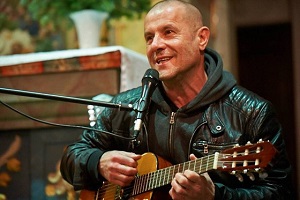
Stephan Krawczyk (Weida, 31 december 1955)
De Surinaamse dichter, percussionist, beeldend kunstenaar, Surinamist, toneelschrijver, regisseur, acteur en maatschappelijk werker Noeki André Mosis (Kingbotho) werd geboren in het District Marowijne op 31 december 1954. Zie ook alle tags voor Kingbotho op dit blog.
Uit: Reisverslag Shanghai
“Zondag 14 juli 2013
Na een lange vlucht van ruim 10 uren, landden wij keurig op tijd bij de Internationale Airport Pudong te Shanghai. De paspoortcontrole bij de luchthaven verliep snel. Terwijl wij in de hal bij de bagagebelt stonden te wachten op onze koffers, rinkelde mijn telefoon. Ik nam op en ik hoorde iemand roepen! “kijk naar boven bij het restaurant”! Daar zaten Georgio, Jennifer, Nio en de kleine Elly-Mae Chen op ons te wachten. Wij zwaaiden naar elkaar.
Het wachten op de koffers duurde langer dan verwacht tot dat ik ging vragen of wij wel bij de juiste bagagebelt stonden. Dat was wel het geval. Maar als alle koffers weggedragen waren door de passagiers en wij met lege handen stonden, liep een Douane ambtenaar ons tegemoet en vroeg ons hem te volgen. Hij bracht ons naar een ruimte waar een aantal koffers onder een visnet lagen. Die koffers werden eruit gehaald en streng gecontroleerd. De douane ambtenaar heeft verder niets gezegd over de inhoud van onze koffer maar wij weten dat het ging om bepaalde etenswaren die bij hen niet bekend zijn, zoals cassavepoeder, pomtajer en overigen. Vooral de casave poeder was verdacht. De Marrons maken soep van maar poeder kan natuurlijk ook iets anders zijn. Die spullen waren onbekend maar blijkbaar niet verboden, dus mochten wij door tot opluchting van onze gastheer en gastvrouw Mosis. Eindelijk ontmoetten wij elkaar in de hal waar wij elkaar een stevige ‘brasa’ gaven en de kindjes geknuffeld. Het geduld van de Taxi chauffeur raakte net niet op van het wachten. Maar als wij uiteindelijk alle bagages hebben ingeladen en nog steeds klem zaten tussen andere taxi’s, liet hij zijn stem horen. Dat hielp! De taxi vóór ons reed een klein beetje vooruit, de ene achter, ons rolde een paar centimeters achteruit en wij konden net schuiven en doorrijden.”

Kingbotho (District Marowijne, 31 december 1954)










